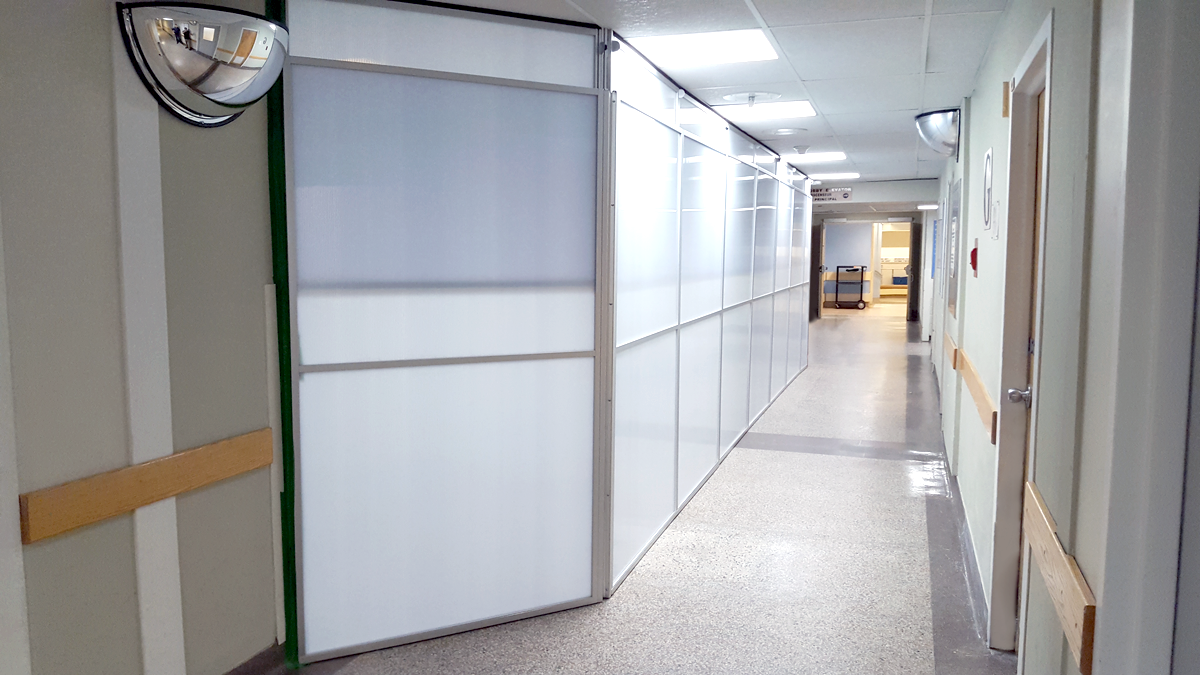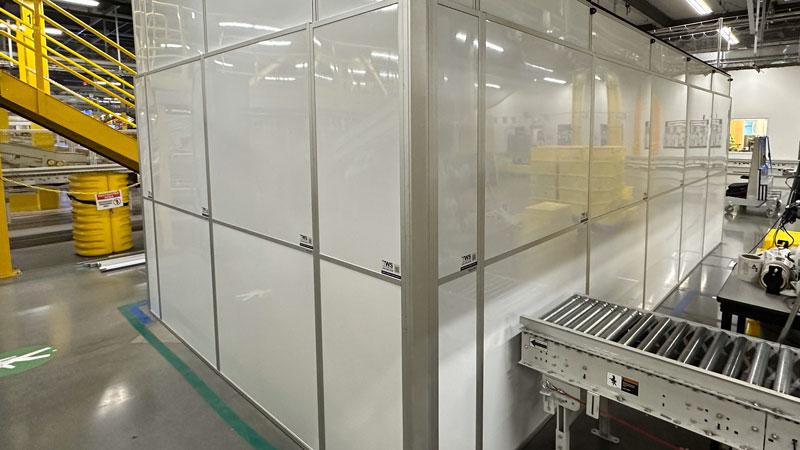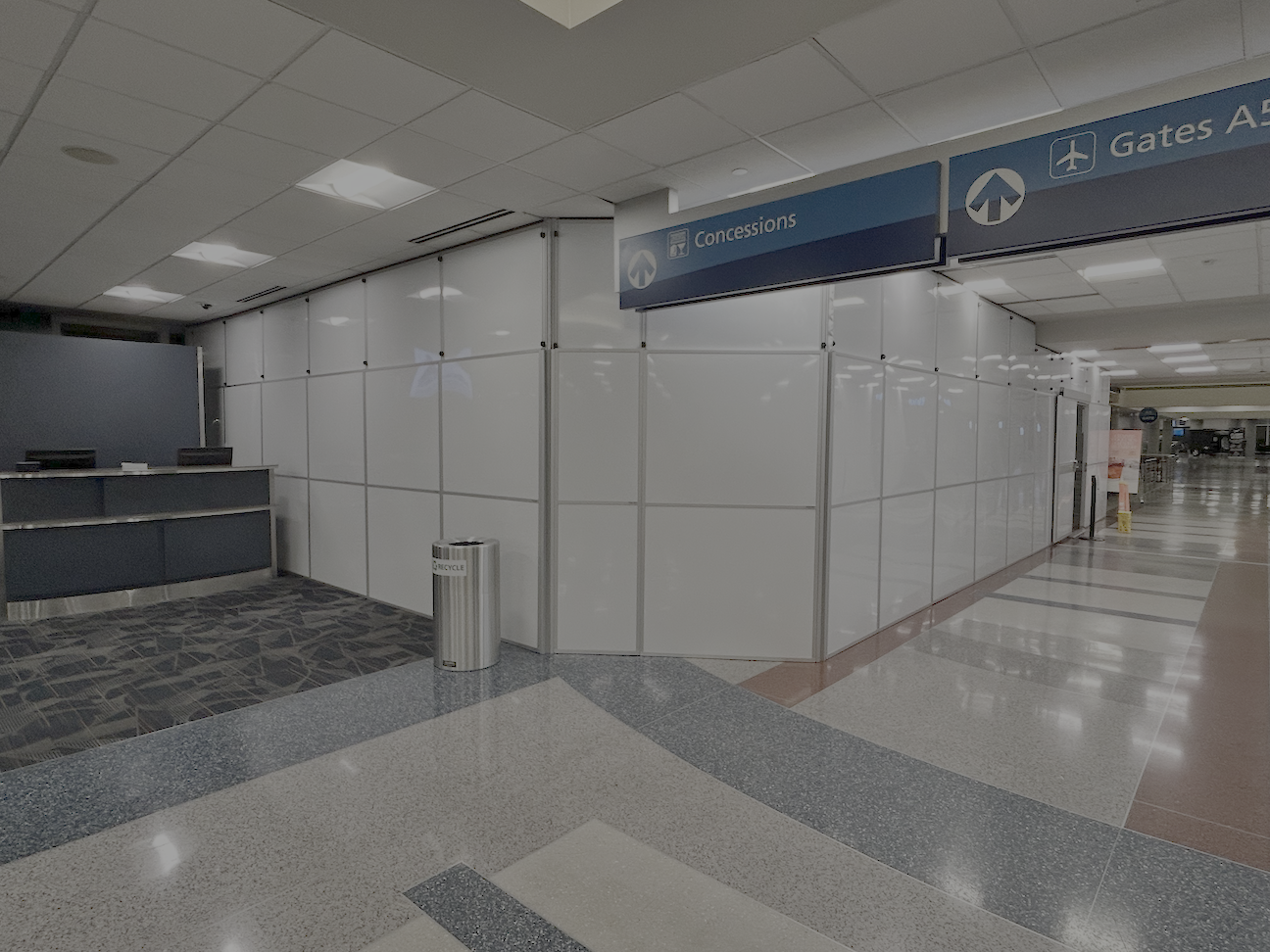Sustainability is no longer an afterthought for businesses. With construction and renovation projects contributing significantly to waste and carbon emissions, companies are beginning to rethink how they approach these activities. Earth Day shines a spotlight on implementing greener practices, but the question is, how can businesses use modular walls for greener operations?
This blog explores how much waste traditional construction generates, how modular walls reduce that waste, and the initiatives businesses can take to align with green construction practices.
The Hidden Costs of Construction Waste
When you think about construction projects, efficiency might not be the first thing that comes to mind. However, the environmental toll is staggering. Construction and demolition contribute over 600 million tons of debris annually in the U.S. alone, according to the Environmental Protection Agency (EPA). This represents over 90% of total construction-related waste.
Here’s where the problem becomes even more pressing:
- Landfill Overflow: A significant portion of waste ends up in landfills, contributing to pollution and resource depletion.
- Unsustainable Materials: Traditional drywall, for example, often can’t be reused and releases harmful chemicals as it degrades.
- High Carbon Footprints: Transporting and disposing of construction debris demands significant energy, further increasing emissions.
Green-focused construction is critical in addressing these issues, and this is where modular walls enter the picture.
How Modular Walls Reduce Construction Waste
Modular wall systems are changing the game in construction and renovation, offering a sustainable alternative with minimal environmental impact. Unlike traditional permanent walls that often get demolished and sent to landfills, modular walls are designed to be reusable and recyclable. Here’s how they make a difference:
1. Reusable Materials
Modular walls are built with materials that can be assembled, disassembled, and reused for future projects. Once a project concludes, these walls can be removed without creating waste, making them an inherently sustainable choice.
2. Reduced Carbon Footprint
The lightweight design of modular walls makes them easier and more energy-efficient to transport. Plus, their installation produces minimal dust and debris, improving both environmental and indoor air quality.
3. Flexibility for Multiple Projects
Brands like Temporary Wall Systems offer modular walls that adapt to various project needs, whether for offices, healthcare facilities, or retail spaces. One set of walls can be used for multiple locations, reducing the demand for new materials each time.
By incorporating modular walls, businesses can significantly reduce their environmental footprint while meeting operational goals.
Building Greener with Sustainable Construction Practices
Sustainability in construction goes beyond using modular walls. Many companies adopt broader initiatives to make their building and renovation processes more eco-friendly. Here are some practices businesses are leveraging to align with green building principles:
1. Incorporating Eco-Friendly Materials
Using low-VOC products, FSC-certified wood, and recycled materials reduces the environmental impact of construction. These choices also contribute to improved indoor air quality, particularly in industries like healthcare and education.
2. Prioritizing Energy Efficiency
Upgrading lighting systems to LED, installing smart HVAC systems, and implementing renewable energy solutions like solar panels significantly reduce a building’s energy consumption over time.
3. Minimizing Waste Through Recycling
By recycling demolition debris, businesses can keep usable materials out of landfills. Tools like Temporary Wall Systems further aid this effort by eliminating disposable construction materials altogether.
4. Achieving LEED Certification
Pursuing Leadership in Energy and Environmental Design (LEED) certifications ensures businesses meet strict environmental standards while improving long-term operational efficiency and tenant satisfaction.
The Turn-Key Solution for Sustainability with Modular Walls
Managing construction waste and reducing your carbon footprint can feel overwhelming. That’s why it’s vital to work with service providers that simplify sustainability and deliver results. Enter Temporary Wall Systems.
Our modular walls don’t just provide an eco-conscious solution; they also streamline your project’s logistics by being full-service, covering every step of the process.
What Sets Temporary Wall Systems Apart:
- Delivery and Installation
We bring the modular walls directly to your site and handle the installation. This not only saves time but ensures precision and compliance with safety standards.
- Customizable Designs
Our walls are highly flexible, accommodating unique layouts or specific industry requirements. Whether you’re hosting a pop-up event, renovating an active hospital wing, or redesigning an office, our walls fit your space seamlessly.
- No Clean-Up Headaches
Once your project concludes, we’ll disassemble and remove the walls, leaving your space clean and waste-free without any additional labor or costs from your team.
- Cost-Effective Leasing Options
Renting modular walls ensures affordability while maintaining the flexibility to revise plans. This makes it an ideal solution for facility managers balancing tight budgets with ambitious sustainability goals.
A Future with Green Construction
Reducing waste and adopting greener operations isn’t just good for the planet; it’s good for business. Sustainability efforts improve your company’s reputation, cut long-term costs, and help future-proof your operations against tightening environmental regulations.
Temporary Wall Systems has already seen businesses across industries—from healthcare to retail to education—embracing modular walls as a core part of their renovation strategy. These walls are more than barriers; they’re building blocks for a more sustainable future.
Curious About Modular Walls? Here’s Your Next Step:
If you’re interested in reducing construction waste and creating greener business operations, we’re here to help. Temporary Wall Systems offers a hassle-free, comprehensive solution that prioritizes both environmental responsibility and efficiency.
Contact us today and take the first step toward incorporating sustainable modular walls into your next project.



